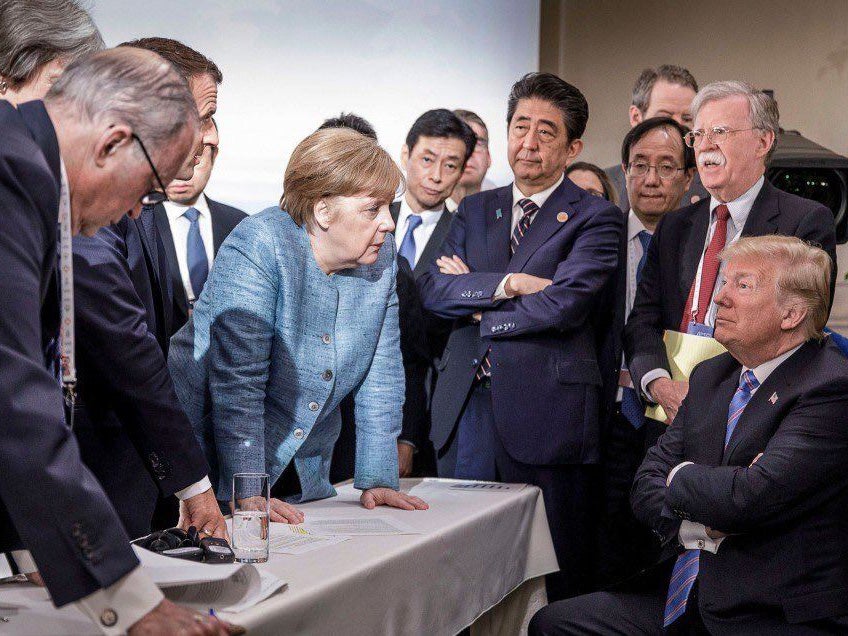Donald Trump is wrong about Russia, but the G7 does need updating to reflect the economic power of China and India
The president prizes himself as a negotiator, but he does not like to negotiate with a group. He prefers to do so one-to-one – he will now have that opportunity in Singapore

Your support helps us to tell the story
From reproductive rights to climate change to Big Tech, The Independent is on the ground when the story is developing. Whether it's investigating the financials of Elon Musk's pro-Trump PAC or producing our latest documentary, 'The A Word', which shines a light on the American women fighting for reproductive rights, we know how important it is to parse out the facts from the messaging.
At such a critical moment in US history, we need reporters on the ground. Your donation allows us to keep sending journalists to speak to both sides of the story.
The Independent is trusted by Americans across the entire political spectrum. And unlike many other quality news outlets, we choose not to lock Americans out of our reporting and analysis with paywalls. We believe quality journalism should be available to everyone, paid for by those who can afford it.
Your support makes all the difference.The ill-tempered summit in Quebec that has just finished is to be followed by a summit of a rather different sort – though maybe equally ill-tempered – in Singapore. The common player is Donald Trump, a reminder that the United States is still both the largest economy in the world and the sole military superpower.
Quebec was about economics, with what were a generation ago the seven largest economies in the world getting together to cooperate in encouraging global growth. The G7 countries, as they are called, are no longer so preeminent. The US remains the largest economy, but the others – Japan, Germany, the UK, France, Italy and Canada – have all been passed by China. India is now number six, and will soon pass the UK to become number five.
The meeting demonstrated tensions between then members of a rich club, with Mr Trump refusing to endorse the communiqué approved by the others. Those tensions were visibly evident in the photo of the seated and glowering US president being confronted by the other leaders, all standing. But in the wider context of the world economy the G7 matters less and less.
Mr Trump called for Russia to be readmitted to the gathering, to make it a G8. He was wrong. Russia is important in military terms but in economic force it is tiny. It was China and India who should have been there if these summits are to reflect the world economy as it is, rather than as it used to be.
The president prizes himself as a negotiator, but he does not like to negotiate with a group. He prefers to do so one-to-one – he will now have that opportunity in Singapore.
In a way this summit is absurd. A sitting US president has never met a leader of North Korea and for good reason. North Korea has a GDP of $30bn (£22bn), making it around number 125 in the global league. Its economy is about half the size of that of Essex.
Were it not for its aggression towards its neighbour to the south, South Korea, and the tacit support from its neighbour to the north, China, it would be unthinkable for a senior US politician to bother visiting it. Its leader Kim Jong-un is the fly on the wheel of the chariot in Aesop's Fables, bragging: “What a dust do I raise.”
Mr Trump enjoys raising dust and has a rather better claim to have done so. But we should look beyond the dust to see what is actually moving. It may well be that North Korea’s attitude to the world is shifting for reasons that will take some time to become clear. Whether this summit will prove material to that shift will also take time to become clear.
Whatever happens, Mr Trump will use the theatre of the meeting to claim credit or apportion blame, but we should look beyond his posturing too. Ultimately what matters is that this rogue state should be incorporated into the global family of nations that can cooperate peaceably together. Whatever our politics, we should hope that this meeting pushes North Korea a little further along that path.
Join our commenting forum
Join thought-provoking conversations, follow other Independent readers and see their replies
Comments